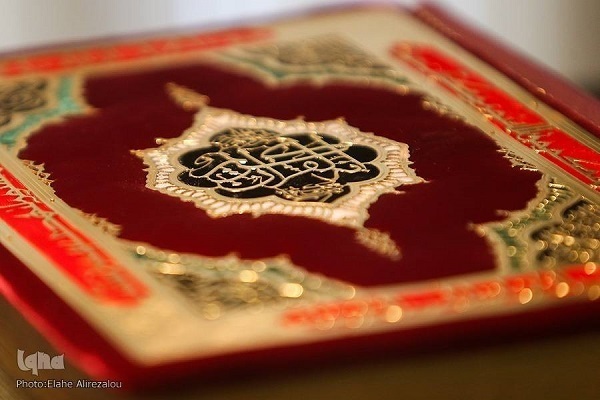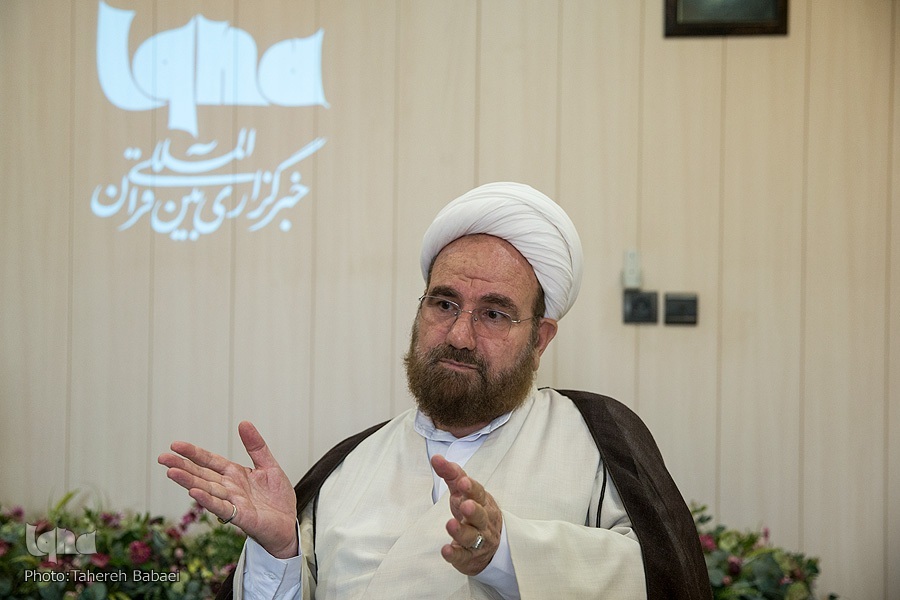Scholar Outlines Six Conditions for an Influential Quran Translation

Hojat-ol-Islam Mohammad-Ali Kousha, a distinguished Quran translator, interpreter, and jurist, believes that translating the Quran for today’s readers demands both linguistic mastery and spiritual integrity.
Speaking to IQNA about the challenges of modern Quran translation, Kousha outlined key principles that, he said, distinguish an influential and enduring rendering of the holy text.
Kousha, born in 1952 in Bijar, is one of Iran’s most prolific Quranic scholars. He has reviewed nearly 200 Persian translations of the Quran and pioneered advanced courses on Quran translation in Iran’s seminaries. His own comparative translation of the Quran, published by Ney Publishing in late 2022, has been reprinted three times and praised by experts. The work has also received commendation from the Islamic Revolution Leader.
According to Kousha, the starting point for any meaningful translation lies in the nature of the Quran itself. “The Quran describes itself as ‘Mobin’ [15:1] — both luminous and illuminating,” he said.
“A translation, therefore, must convey meanings with the same clarity and transparency. It must be understandable to all, just as the Quran was revealed to be.”
Read More:
He emphasized that a good translation should be “free from obscurity and complexity,” echoing the Quranic verse that praises the Book as ‘without crookedness.’[18:1]
“The translator must avoid convoluted language or archaic expressions,” he said. “The text should flow naturally while preserving the eloquence and majesty of the original.”
Six Essential Conditions
Kousha believes that the qualifications of the translator are even more crucial than the style of translation itself. Drawing on classical and modern scholarship, he referred to conditions outlined by Jalal al-Din al-Suyuti in Al-Itqan fi Ulum al-Quran and later expanded by Iranian scholar Mohammad Mahdi Khorramshahi. Of the 22 conditions they listed, Kousha said six are indispensable.
“The first,” he said, “is mastery of both languages — the source language, Arabic, and the target language, such as Persian. Without full command of grammar and expression in both, accuracy is impossible.”

The second requirement, he added, is the ability to write in a “strong, clear, and fluent style.” A translation, however accurate, will fail if its prose is heavy or awkward. “If the text doesn’t read smoothly, the audience won’t grasp its meaning,” Kousha said.
Third, he stressed familiarity with Quranic sciences. “The translator must understand the concepts of muhkam and mutashabih, nasikh and mansukh, and general versus specific verses,” he said. “Without this, one cannot explain or even correctly translate certain expressions or theological nuances.”
The fourth condition is knowledge of Islamic jurisprudence, or fiqh. Kousha noted that around 500 Quranic verses deal with legal rulings, requiring the translator to understand these contexts.
“One cannot translate the verses on inheritance in Surah al-Nisa correctly without familiarity with jurisprudence,” he said. “Many translators, even some jurists, have erred in these verses due to lack of focus or legal expertise.”
The fifth, he continued, is an acquaintance with theology, or kalam. This allows the translator to distinguish between attributes of God that refer to divine essence and those referring to divine acts. “For example, the word ‘wāsiʿ’ occurs eleven times in the Quran,” he said. “In some verses, it means ‘all-encompassing,’ not merely ‘bountiful’ or ‘expansive.’ Without knowledge of theology, these subtle distinctions are lost.”
Read More:
Finally, Kousha said, the translator must possess “mental and spiritual soundness.” Intellectual capacity alone, he warned, is not enough. “If a translator lacks inner balance or has a mind inclined toward superstition, he might interpret verses to suit his personal biases,” he said. “Such a person, even if knowledgeable, is not qualified to translate the Quran.”
Beyond these six conditions, Kousha pointed the importance of maintaining “standard prose.” A Quran translation, he argued, should avoid obsolete, contrived, or artificial language and instead reflect a balanced tone that is “eloquent, expressive, fluent, and faithful to meaning.”
“The translator must refrain from using outdated or overly ornate vocabulary,” he said. “The language should be accessible but dignified — close to the natural speech of educated readers while preserving the sanctity of the divine message.”
4308287



